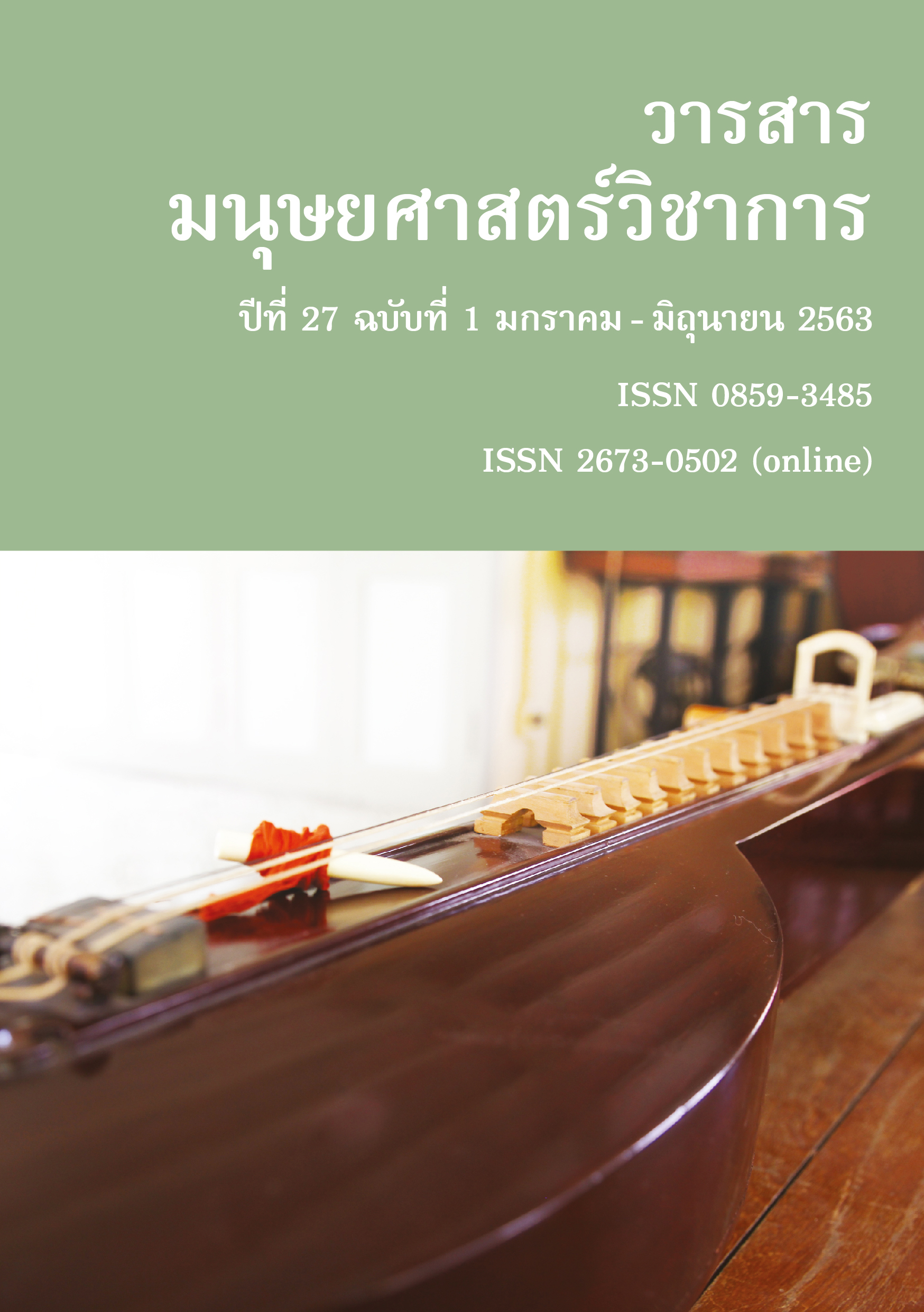An Analytical Study of the Theravāda Buddhist Moral Concept in Rose La Raine’s Shadow
Main Article Content
Abstract
The objectives of this study were 1) to study the novel concept, Shadow, composed by Rose La Reine, 2) to study the moral idea of Theravāda Buddhist morality and 3) to investigate the concept of Theravāda Buddhist morality as shown in the novel, Shadow. This study was conducted using the qualitative research collecting the data from various sources such as the primary resource and the secondary resource including the Tipitaka and its commentaries and the novel, Shadow, and other related materiels. Then the data had been analyzed and valued for the objectivs of the study.
The study had shown that “Shadow” is Buddhism-based novel symbolized as the principle of Karma like the shadow follows the owner. The moral concept of Theravāda Buddhism can be divided into three levels; primary level as the Five Precepts, middle level as the Ten Wholesome Courses of Action and the high level as the Noble Eightfold Path. After analysing the story by Theravāda Buddhist moral concept, the study has been found that the author has divided the characters into three groups as follows: the good, the bad, and the bad turned the good. All their moral behaviours are always in the eyes of the Yama, the ruler of the kingdom of the dead. The essential factors that affect the different moral behaviours of these three characters come from the surroundings, ie, parenting within the family and friends that how much they contribute to grow in the mind of Theravāda Buddhist morality. After the death, because of the karmic effect, the good are to be born in the happy state but the bad are to be born in the unhappy one. Regarding the unhappy state like the hell, theYama will inform to which hell the bad should go.
Article Details
References
กนกวรรณ คงทนชุุณหพร. (2554). แนวคิดพุุทธศาสนาในนวนิยายของแก้วเก้า. (วิิทยานิิพนธ์์ปริิญญามหาบััณฑิิต). มหาวิิทยาลััยศรีีนคริินทรวิิโรฒ, สาขาวิิชาภาษาไทย.
พระธรรมโกศาจารย์ (พุทธทาส อินฺทปญฺโญ). 2544. หนทางอันประเสริฐสำหรับชีวิต. สุราษฎร์ธานี : ธรรม
ทานมูลนิธิ
พระธรรมปิฎก (ป.อ. ปยุตโต). 2545. พจนานุกรมพุทธศาสตร์ ฉบับประมวลธรรม. พิมพ์ครั้งที่ 11 .
กรุงเทพมหานคร : โรงพิมพ์บริษัทสหธรรมิกจำกัด.
พระพรหมคุณาภรณ์ (ป.อ.ปยุตฺโต). 2559. พจนานุกรมพุทธศาสตร์ ฉบับประมวลธรรม.พิมพ์ครั้งที่
กรุงเทพฯ : มูลนิธิการศึกษาเพื่อสันติภาพพระธรรมปิฎก (ป.อ.ปยุตฺโต).
พระราชวรมุนี (ประยุทธ์ ปยุตฺโต). 2529. พุทธธรรม ฉบับปรับปรุงและขยายความ. พิมพ์ครั้งที่ 3. กรุงเทพฯ:
ด่านสุทธาการพิมพ์.
ภาวิินีี ตรีีเดชีี. (2554). กลวิิธีีการนำเสนอพุุทธธรรมในนวนิยายอิงธรรมะของสุุชีพ ปุ ุญญานุุภาพ. (วิทยนิพนธ์ปริิญญามหาบััณฑิต). จุุฬาลงกรณ์มหาวิิทยาลััย, สาขาวิิชาภาษาไทย.
มหาจุฬาลงกรณราชวิทยาลัย. 2539. พระไตรปิฎกภาษาไทย ฉบับมหาจุฬาลงกรณราชวิทยาลัย เล่ม
ที่ 4,11,12,13,14,15,16,20,22,25 และ35. กรุงเทพฯ : มหาจุฬาลงกรณราชวิทยาลัย.
มหามกุฏราชวิทยาลัย. 2521. วิสุทธิมรรค แปล ภาค 3 ตอนจบ. กรุงเทพฯ : มหามกุฏราชวิทยาลัย.
มิลินทปัญหา ฉบับแปลในมหามกุฏราชวิทยาลัย. 2543. กรุงเทพฯ : มหามกุฏราชวิทยาลัย.
โยธิิน มาหา. (2547). การศึึกษาเชิิงวิิเคราะห์์หลัักพุุทธจริิยธรรมที่่ปรากฏในวรรณกรรมของอาจารย์สุุชีีพ ปุุญญานุุภาพ. (วิิทยานิิพนธ์ปริิญญามหาบััณฑิิต). มหาวิิทยาลััยมหิิดล, สาขาจริิยศาสตร์ศึกษา.
โรสลาเรน. 2551. เงา. พิมพ์ครั้งที่ 11. กรุงเทพฯ : สำนักพิมพ์ ณ บ้านวรรณกรรม.
วศิน อินทสระ. 2544. พุทธจริยศาสตร์. กรุงเทพฯ : โรงพิมพ์เม็ดทราย.
สุนทร ณ รังษี. 2541. พุทธปรัชญาจากพระไตรปิฎก. กรุงเทพฯ : โรงพิมพ์แห่งจุฬาลงกรณ์มหาวิทยาลัย
แสงเดืือน สุุขประเสริิฐ. (2556). บทบาทตััวละครสตรีีที่สื่อหลัักธรรมเรื่องจิิตในนวนิิยาย เรื่องฌานของทมยัันตีี [ข้้อมููลอิิเล็็กทรอนิิกส์์]. วารสารสถาบัันวัฒนธรรมและศิิลปะ, 15(1), 126-134.
โอมาร์ คัยยัม. 2512. รุไบยาต. พระเจ้าบรมวงศ์เธอ กรมพระนราธิปประพันธ์พงศ์ ผู้แปล.พระนคร :
โรงพิมพ์สำนักทำเนียบนายกรัฐมนตรี.


